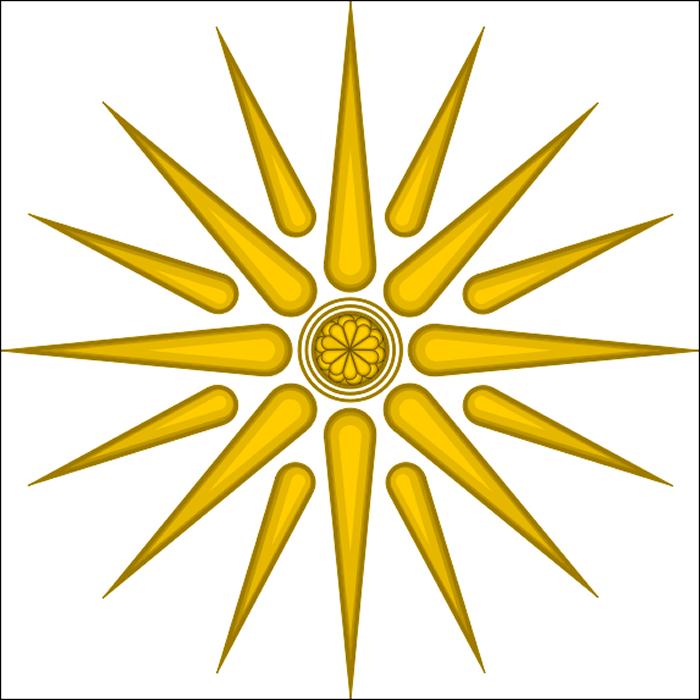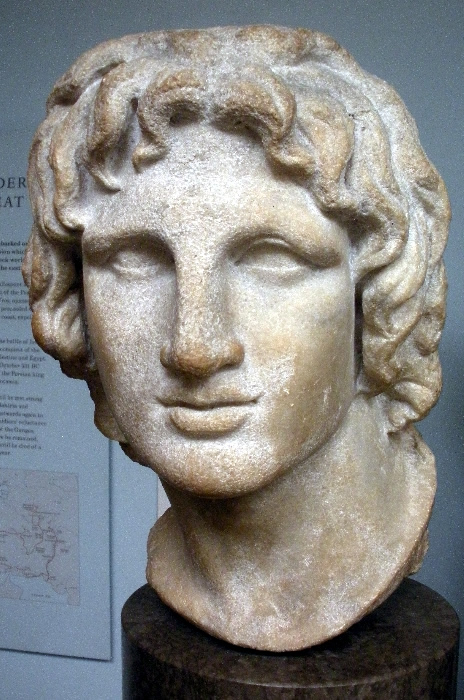 Alexander the Great
Alexander the Great

(Text by Duane R. Hurst © 2013)
Click on a link to view its information and pictures.
|
ALEXANDER LINKS: Significant Event: Alexander Attacks Tyre Alexander Cuts Gordian Knot Battle of Granicus River Battle of Issus Time: 332-323 BC Main Cities: Alexandria; Heraclea Lyncestis; Pella Language: Greek; Macedonian Personage: Alexander Religion: Greek Gods Related Country: Greece; Macedonia |
|
|
Brief History: I have included only a few items concerning the history of this empire. A good source for more details can be found on Wikipedia or in history books. PHILIP OF MACEDON: King Philip II of ancient Macedon sired and encouraged Alexander. Aristotle tutored the prince until age 16. Upon Philip's assassination in 336 BC, Alexander became king and embarked on building one of the largest empires of the ancient world. He never suffered defeat in battle, but died at the age of 32 in Babylon. EARLY CONQUESTS: In 334 BC Alexander crossed the Hellespont and invaded Anatolia in a series of campaigns against the sprawling Persian empire of King Darius III. He personally led in battle with the elite Companions. Alexander won a decisive battle in May 334 BC at Granicus River (near the site of ancient Troy). Darius attempted to foment trouble for Macedon in Sparta, but they were defeated at Megalopolis in 331 BC. In November, Persian forces again lost a decisive battle at Issus, where Darius fled and abandoned his army. After a lengthy siege in 332 BC, Alexander entered Tyre. He ordered the execution of military-age males and sold women into slavery because the city offered such a long defense. His army then seized a largely compliant Egypt and founded the coastal city of Alexandria. Men and women of a resisting Gaza suffered a similar fate as those from Tyre. However, he spared Jerusalem after being shown a copy of Daniel's prophecy that a Greek king would conquer Persia. LATER CONQUESTS: After the conquest of Egypt, Alexander turned his attention to the wide expanse of eastern Persian lands. A final decisive battle occurred on 1 October 331 BC at Arbela (Gaugamela) as Alexander led a successful flanking attack. Darius fled to Ecbatana while Alexander seized Babylon, Susa and the Persian capital at Persepolis. Darius unsuccessfully offered nearly half of his empire to stop further warfare. Persian satraps (Bessus and Nabarzanes) murdered the fallen king and Alexander honored the king with a lavish funeral. He then seized control of the Persian empire and married Stateira II, sister of Darius. He married Roxana (Roshanak) during a campaign in Bactria. Alexander crossed the Indus River, defeating King Porus at Hydaspes River, but allowed him to maintain the throne. Years of continuous warfare and the prospect of fighting stronger empires in India led his men to mutiny at the Vipasa (Hyphasis) River. Alexander reluctantly took his weary force on a grueling march across the southern desert of modern Iran to Babylon, where Alexander died in June 323 BC. |
|
|
© Page Publisher: Duane R. Hurst
|


